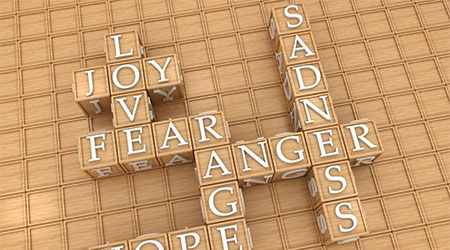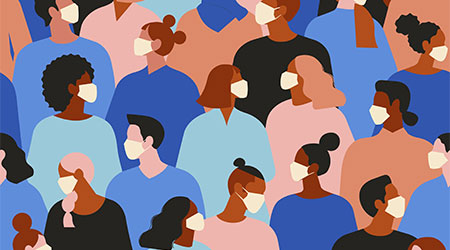
How to Recognize Our Emotions
By: Gabriel Vitug
Guest Writer
When it comes to coping with anxiety, an effective first step is to recognize our emotions. However, identifying emotions and what causes them can be daunting at first. Below is a step by step guide that will help you through the process.
Step 1: Take your emotional temperature.
To take your emotional temperature, try to evaluate what you feel, mentally, emotionally, and physically whenever you experience anxiety or are overwhelmed by stress. Ask yourself, how do I feel? Whatever that may be, it is important to be specific. Try to avoid vague statements such as “fine” or “okay.” To help you identify and name different emotions, here’s a feelings wheel. Next, identify which emotions are the strongest and try to pinpoint when you started feeling this way. Take your time, the key is to be thorough.
Don’t forget to acknowledge the positive emotions. Identifying the feelings that enrich our lives is also very important. Documenting your responses can be beneficial to the process as well. This way, you can easily come back and pick up where you left off.
Step 2: Identify what causes your emotions.
Once you have taken your emotional temperature, identify what triggers certain emotions. Just like the previous step, being specific and thorough is crucial. To do this, think about a moment where you felt anxious. Try to pick apart that moment. Are you talking to someone new? Or are you overwhelmed by multiple looming deadlines at school or work? Also, try to consider emotional reactions to situations you have no control over such as world events or dreams.
Step 3: Self-compassion.
Feeling guilty for feeling anxious is a common mistake we make. Try being kinder to yourself; talk to yourself like you would a friend. Another mistake people make is ignoring their emotions. In an article for Psychology Today, Dr. Joan Cusack Handler says that “feelings function like a pressure cooker: Pressure increases without release. Then, once released, the intensity is reduced. The corollary is the fact that feelings that are denied or dismissed do NOT diminish in size or disappear, but are intensified.”
I can definitely attest to Dr. Handler’s previous statement. Before learning about coping strategies and anxiety in general, whenever I felt strong emotions, I’d always try to bottle them up and wait for them to go away. Spoiler alert: these emotions never went away. It wasn’t until I started being more proactive that I started to feel better. To learn some effective strategies, check out our article on coping with stress.
Unless our emotions are negatively impacting others around us, we should remind ourselves that what we feel is valid. But If dealing with emotions ever becomes too much to handle on your own, reach out to a mental health professional.
Works Cited
Turrell et al. The Mindfulness & Acceptance Workbook for Teen Anxiety. New Harbinger
Publications.
Handler, Joan Cusack. “Identifying Your Feelings.” Psychology Today, 19 January 2018,
https://www.psychologytoday.com/us/blog/art-and-science/201801/identifying-your-feelings. Accessed 1 June 2021.


